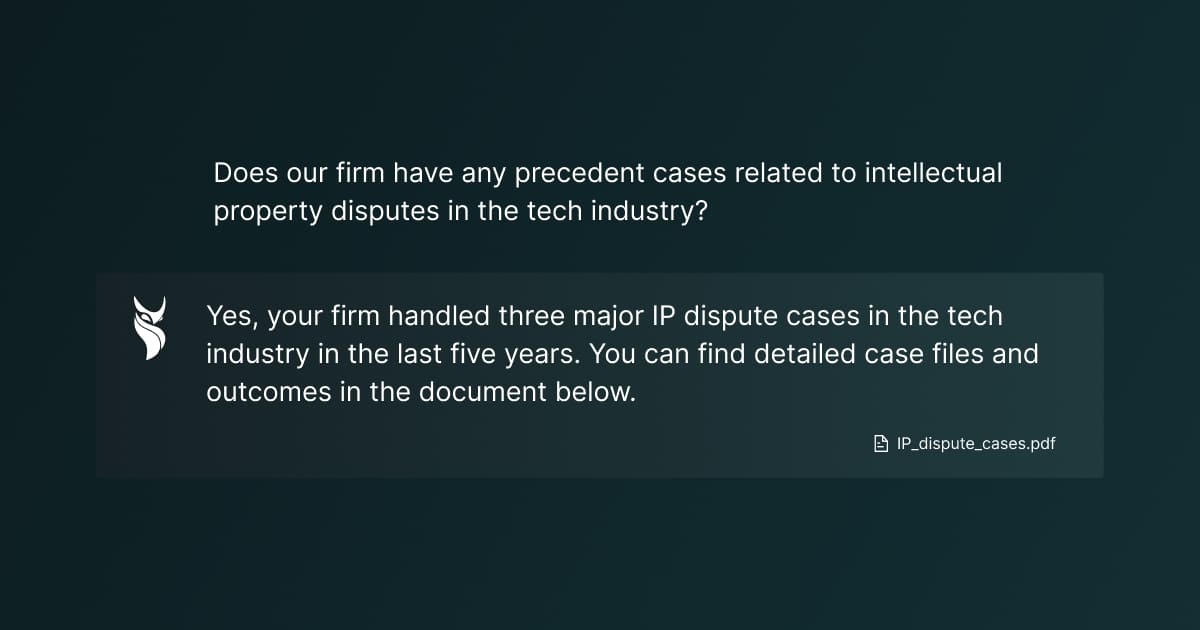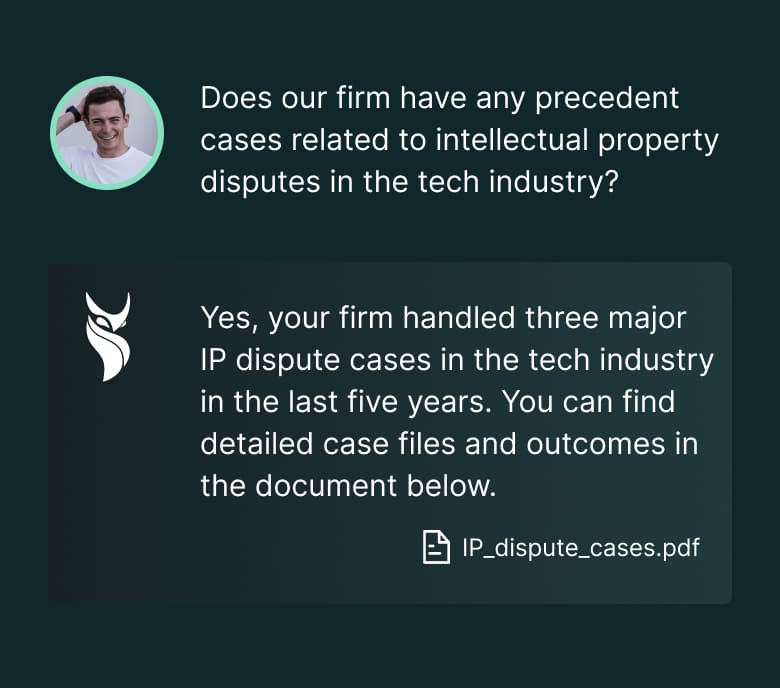Generative AI: Promise and perils for law firms

The idea of using Generative AI in law firms has caught the attention of many. With the development of powerful language models, the legal industry is now at a turning point for major changes.
From creating client briefs to deriving detailed insights from large volumes of documents, the use cases for AI in law firms are vast. In a 2023 Lexis study, 77% of respondents said these tools will enhance the productivity of lawyers, paralegals, and law clerks.
Document review
In legal proceedings, thoroughly reviewing extensive documents—ranging from emails and contracts to records—is crucial.
Generative AI, equipped with natural language processing (NLP), excels at pulling essential information and pinpointing relevant content from documents. This technology enables legal professionals to swiftly find crucial details without the need to manually sift through lengthy documents.
Legal research
Legal research is essentially a deep dive into the world of law, seeking out the key pieces of information and precedents relevant to a specific legal issue or case.
The goal is to gather authoritative sources, including statutes, regulations, case law, legal opinions, and scholarly articles, to strengthen legal arguments, guide well-informed decisions, and deliver precise advice to clients.
Gen AI analyzes legal texts, statutes, and case law to improve the extraction of pertinent information from complex legal documents. It can also summarize and cross-reference information from legal documents to aid in a more comprehensive research.
Predicting legal outcomes
Manually forecasting legal outcomes poses challenges due to the sheer volume of legal data and the potential for bias.
Generative AI adopts an objective stance in predicting legal outcomes, reducing the influence of human bias. Through data-driven analysis, it offers legal professionals impartial insights into potential case outcomes.
Risks associated with Generative AI in law firms
Introducing legal AI tools comes with a set of risks. The story of Steven Schwartz, a personal-injury lawyer at Levidow, Levidow & Oberman, is a cautionary tale.
In May 2023, he turned to ChatGPT, hoping it would streamline his court filing preparation. Unfortunately, Schwartz leaned too heavily on this AI tool. The result was a legal document filled with fictitious cases, rulings, and quotes.
And despite GPT-4 passing the bar exam and scoring in the 90th percentile, this technology still has the unfortunate habit of making stuff up.
“When I asked research-related questions, ChatGPT spit back something that sounded very intelligent and provided a conglomeration of citations that looked real but don’t actually exist,” Ashley B. Armstrong, assistant clinical professor of law at the University of Connecticut School of Law, said.
Ms Amstrong has been working with ChatGPT and generative AI in the legal writing context. The more obscure the topic, she says, the more likely ChatGPT is to hallucinate.
The issue with open-source models is that they base their answers on the information from the web, which is often wrong. On the other hand, if you type something into ChatGPT, your opposing counsel might get insight into your legal strategy or argument, because the information you submit is publicly available.
These experiences highlight the necessity for models like Seraf, trained on relevant, non-web data. This allows lawyers to streamline tasks like legal research and document drafting, ensuring accuracy and privacy.
Final thoughts
In summary, while Generative AI offers great promise for improving legal processes, it also poses risks, as seen in Steven Schwartz’s case. While AI tools can streamline tasks, they may produce inaccurate information. To harness their potential, it’s crucial to ensure they’re trained on reliable data and safeguard privacy.
Despite challenges, Generative AI has the potential to transform legal practice, boosting efficiency and accuracy. By embracing this technology cautiously, the legal industry can unlock new opportunities for innovation and progress.
Looking for a trusted Generative AI tool to level up your legal practice? Learn more about Seraf.
Get valuable insights about AI and business automation
Ready to level up your sales game?






